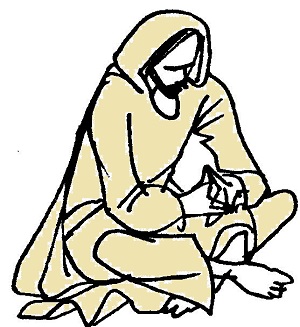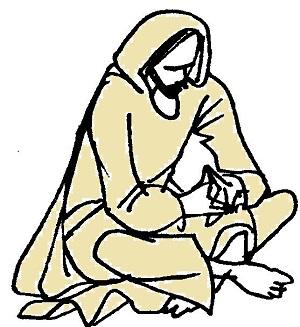

“I do not accept human praise” (John 5:41).
Any attempt to understand who Jesus was and is challenges us to explore our own identity. John’s Gospel probes the core question of Jesus’ claim that he was one with God. In psychological terms, this claim is either a total delusion or true. In biblical terms, Jesus is viewed as standing at the thematic center of reality, revealing both the mystery of God and the mystery and purpose of every human being.
Our search for our own identity raises the issue of how much we depend on the approval of others. We first receive our identity from our families and our culture. Going beyond this assigned role means stepping away from human approval. Many philosophers and artists have described this stage in life as a kind of rebellion and one of the loneliest journeys anyone can undertake. Without external affirmation, a person must find themselves grounded in something deeper than group approval.
Jesus, who represents the ultimate expression of human maturity, addresses his critics in today’s Gospel from the depth of his total identification with God. Because he is the Son of God, he is also the Son of Man; his humanity reveals the fullness of divinity. He is the visible face of the invisible God.
In reading today’s passages from John’s Gospel, the only thing that keeps us from stepping into a bottomless spiral of abstract speculation is the very premise of the Christian faith – that we know God and discover our true selves in an encounter with Jesus Christ. What begins as a human search for identity leads us to prayer, and beyond that into silence. There, stripped of all human concepts and language, we await the Word that alone calls us into existence as the sons and daughters of God.
This identity is the message of baptism. In Christ, we are God’s children, marked by the image of God, grounded in God and moving toward God and the Beloved Community of shared divine life. This idea is itself an immense mystery. Only by experiencing it can we begin to understand it. We do this by following Jesus—thinking his thoughts, hearing his voice in the Scriptures, doing our best to imitate his love for those who accompany us through life. This is our search for self. Who can know this self except the person who hears the call and moves toward the love of God?
This is the path taken by the fourth Gospel and the Letters of John. They are treasures of the church, guideposts left by their author(s) for us, but they are not the only path. For many believers, reading, reflecting on and praying over the Gospels is the heart of ordinary Christian life. This is the “Mystagogia” or spiritual path the newly baptized take as their baptismal honeymoon, a love story we all must engage in to know God.
Advertisement






